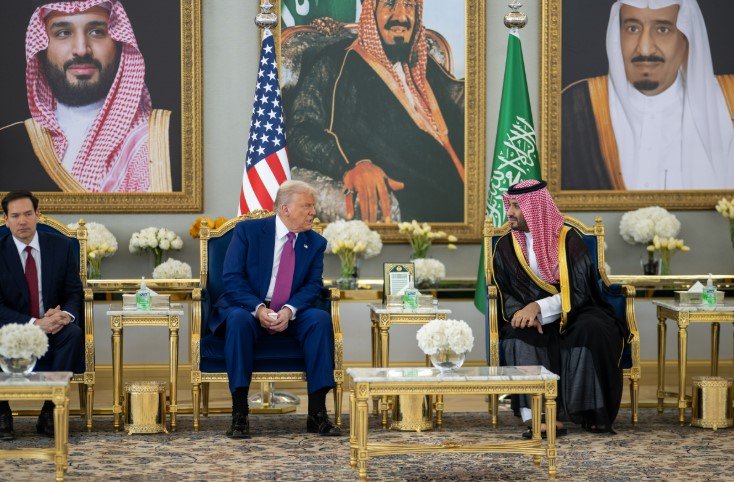The United Kingdom and the United States will sign a groundbreaking technology agreement during President Donald Trump’s state visit to London from September 16 to 18, 2025. This pact aims to boost cooperation in key areas like artificial intelligence, semiconductors, telecommunications, and quantum computing, with billions in investments set to strengthen ties between the two nations.
Key Details of the Tech Agreement
Officials from both countries have worked for months to finalize this deal, which comes at a time when global tech competition is heating up. The agreement will create frameworks for joint research, shared standards, and easier trade in advanced technologies. It responds to growing concerns over supply chain vulnerabilities, especially in semiconductors, where both nations seek to reduce reliance on other countries.
This move builds on past alliances, such as the AUKUS pact, but focuses more on civilian tech innovation. Experts say it could lead to faster development of AI tools that improve healthcare and transportation. The timing aligns with Trump’s push for stronger economic bonds with allies amid trade tensions elsewhere.
The deal also includes protections for intellectual property, ensuring that innovations benefit both economies without unfair advantages.

Massive Investments Driving the Partnership
Private sector commitments are a big part of this agreement, with over 20 billion pounds in announced investments. Major US firms are stepping up to expand operations in the UK, creating jobs and building infrastructure.
For instance, BlackRock plans to pour 500 million pounds into new data centers. Citigroup will invest 1.1 billion pounds to grow its UK presence. These funds aim to support the booming demand for AI computing power.
Bank of America intends to add up to 1,000 jobs in Belfast, focusing on tech and finance roles. PayPal has committed 150 million pounds for innovative projects that could revolutionize digital payments.
This influx of capital is expected to generate thousands of jobs across the UK, from London to Northern Ireland. It ties into broader trends, like the global race to build advanced data centers amid the AI boom.
Tech Leaders Join the Spotlight
President Trump’s visit will feature high-profile tech executives, highlighting the deal’s importance. Nvidia CEO Jensen Huang and OpenAI CEO Sam Altman are among those attending events in London.
Nvidia, a leader in AI chips, is set to announce investments in UK data centers as part of the massive 500 billion dollar Stargate AI project. This initiative, launched earlier in 2025, aims to create supercomputers for next-level AI research.
OpenAI plans similar commitments, focusing on collaborative AI development. Their involvement underscores how private innovation drives government pacts.
These leaders will join discussions on ethical AI use and global standards, addressing public worries about job displacement from automation.
Events during the visit include a state banquet and meetings at Buckingham Palace, blending diplomacy with business.
Broader Impacts on Global Tech Landscape
This agreement could reshape international tech dynamics, especially against rivals like China. By pooling resources, the UK and US aim to lead in quantum computing, which promises unbreakable encryption and faster drug discovery.
Recent events, such as the 2025 chip shortages, have pushed nations to secure domestic production. The deal includes plans for joint semiconductor manufacturing hubs, potentially in the UK Midlands.
It also touches on telecommunications, with goals to advance 6G networks. This follows the UK’s earlier bans on certain foreign equipment for security reasons.
Economists predict this could add billions to both GDPs over the next decade. However, some critics worry about data privacy risks in cross-border collaborations.
- Enhanced AI research: Joint projects to develop safer, more efficient systems.
- Semiconductor supply: New factories to produce chips locally.
- Quantum advancements: Shared labs for breakthroughs in computing speed.
- Telecom upgrades: Faster networks for better connectivity.
Challenges and Future Outlook
While the deal brings excitement, hurdles remain. Trade experts note that steel tariffs, a sticking point in US-UK relations, might not be fully resolved here. The focus stays on tech, but broader trade talks could follow.
Environmental concerns arise with data centers’ high energy use. Both governments have pledged sustainable practices, like using renewable sources.
Public sentiment is mixed, with polls showing strong support for job-creating investments but caution over foreign influence.
Looking ahead, this pact sets the stage for similar deals with other allies. It reflects 2025’s trend of tech nationalism, where countries prioritize homegrown innovation.
| Company | Investment Amount | Focus Area | Expected Impact |
|---|---|---|---|
| BlackRock | 500 million pounds | Data centers | Boost AI infrastructure |
| Citigroup | 1.1 billion pounds | Operations expansion | Create finance jobs |
| Bank of America | Not specified (jobs focus) | Tech and finance roles | Up to 1,000 new positions in Belfast |
| PayPal | 150 million pounds | Innovative projects | Advance digital payments |
| Nvidia | Part of 500 billion dollar project | AI data centers | Supercomputing advancements |
| OpenAI | Significant commitments | AI development | Collaborative research |
What This Means for Businesses and Consumers
For businesses, the agreement opens doors to new markets and funding. UK startups could gain access to US venture capital, while American firms benefit from the UK’s skilled workforce.
Consumers stand to gain from faster tech rollouts, like smarter devices and better online security. However, prices might rise short-term due to investment costs.
This deal highlights how tech partnerships can drive economic recovery post recent global slowdowns.
What do you think about this tech pact? Share your thoughts in the comments and spread the word if you found this insightful.








